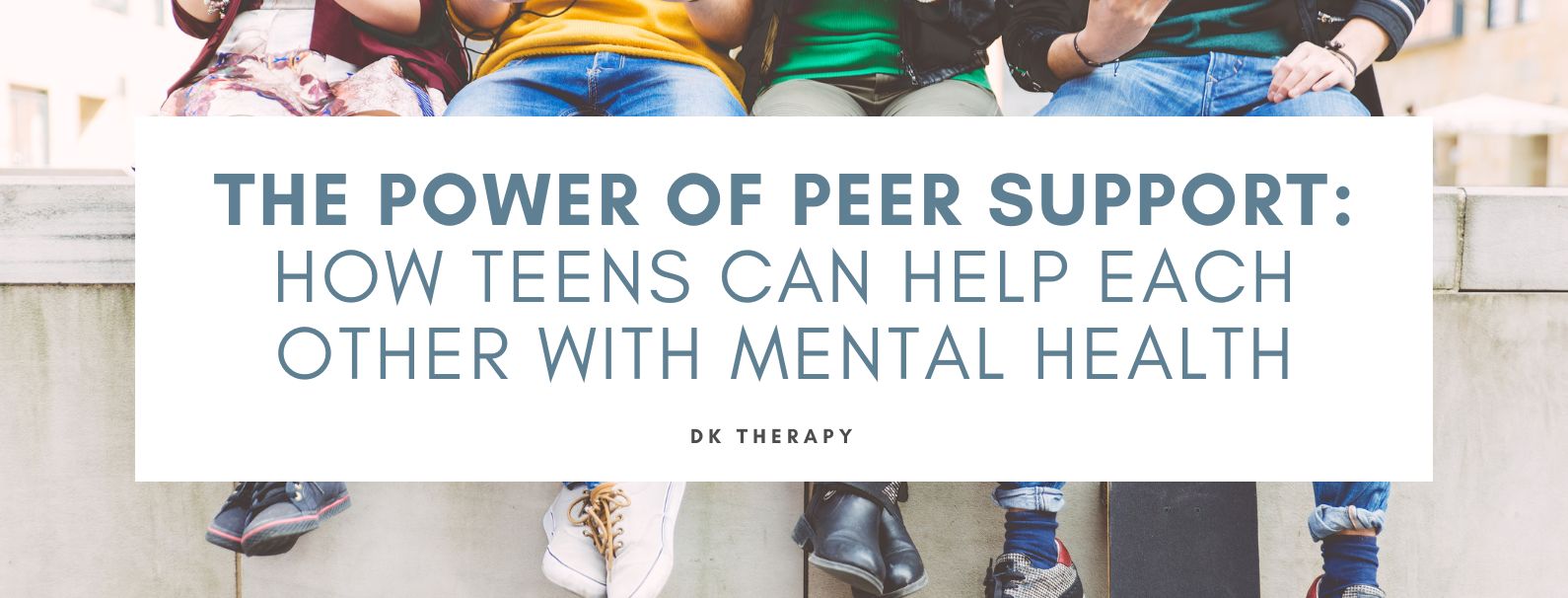
The teenage years can be a rollercoaster of emotions, social pressures, and academic stress. Family support and professional counseling are incredibly important, but peer support plays a powerful role as well in helping teens overcome mental health challenges. By creating a culture of understanding and support, teens can make a big difference in the quality of each other’s lives.
Why Peer Support Matters
 Young people often feel more comfortable opening up to their peers than to adults. They may fear judgment from parents or teachers, but a friend who has experienced similar struggles can offer reassurance. Studies show that peer support can reduce feelings of isolation in teens, as well as boost self-esteem, and encourage more help-seeking behaviors.
Young people often feel more comfortable opening up to their peers than to adults. They may fear judgment from parents or teachers, but a friend who has experienced similar struggles can offer reassurance. Studies show that peer support can reduce feelings of isolation in teens, as well as boost self-esteem, and encourage more help-seeking behaviors.
Ways Teens Can Support Each Other
Solidarity can make a world of difference when it comes to facing the challenges that arise in youth. When young people take meaningful steps to help lift each other up, they develop a sense of camaraderie where no one is left behind.
Try the following to encourage a supportive environment amidst your friend group.
Active Listening
One of the most supportive things a teen can offer is simply being there to listen when someone is in need. Active listening means giving full attention, maintaining eye contact, and responding thoughtfully instead of immediately offering solutions. When a friend feels heard, it validates their emotions and reduces the sense of loneliness they might otherwise experience.
Encouraging Open Conversations
Creating a safe space where your friends feel comfortable discussing their feelings helps normalize conversations about mental health. By sharing experiences and detailing emotions, young people can break the stigma around anxiety, depression, and stress.
Recognizing Warning Signs
Teens who spend time together daily are often the first to notice changes in a friend’s behavior. Warning signs like social withdrawal, changes in sleeping or eating patterns, or loss of interest in activities may point to growing struggles. Recognizing these signs can make it easier to offer support and suggest professional help if needed.
Reaching Out for Help When Needed
Peer support can be quite valuable, but it does not replace professional help. Teens should encourage friends to talk to a trusted adult or seek counseling if their struggles become overwhelming. Knowing when to step in and guide a friend toward professional help is a key aspect of being a caring friend.
Building a Supportive Culture
It’s important to create an environment where peer support catches on and thrives. Part of building each other up involves taking steps to remove the guilt or embarrassment out of needing help. Remind your peers that they have a network to turn to and that there is no shame in seeking supportive services when the ups and downs of youth become too much.
The Ripple Effect of Peer Support
When teens support each other, they create a ripple effect of understanding. A single conversation, a simple check-in, or a reassuring text can brighten someone’s day. By being there for one another, teens can create an empathetic community, one that embraces and supports everyone who seeks it.
Teens have the ability to uplift, encourage, and guide one another through the challenges of adolescence. By building a supportive environment and promoting healthy coping strategies, they can make a lasting impact on their friends’ mental health. So, instead of facing your emotional and mental hardships in silence, reach out to a friend and work on building each other up.
If you’re struggling and you’d like to reap the benefits of therapy, reach out to DK Therapy and schedule an appointment with our office.




